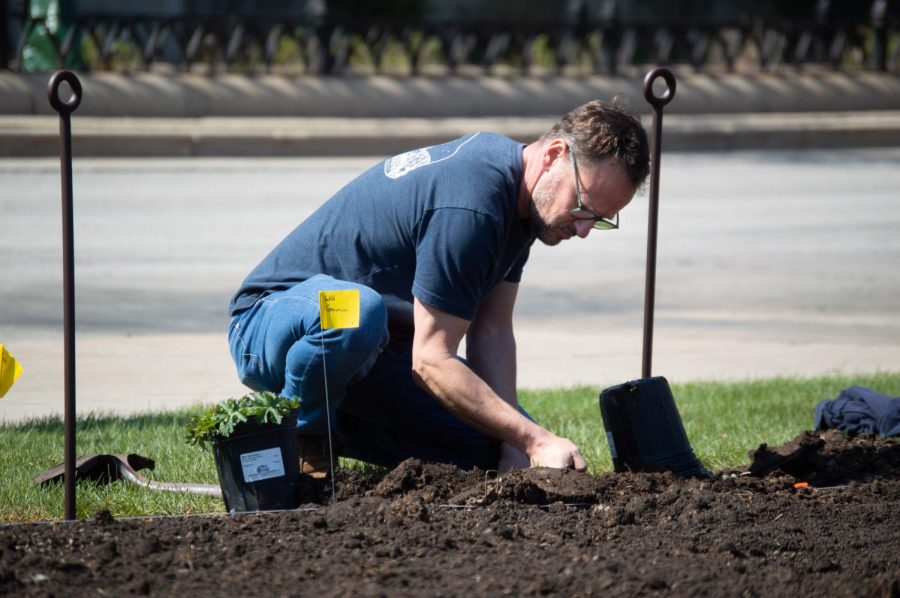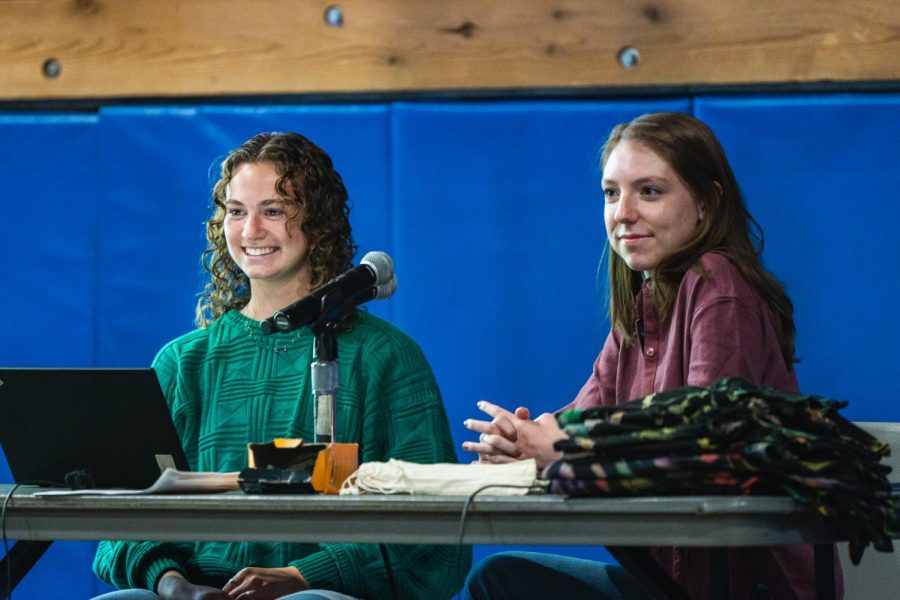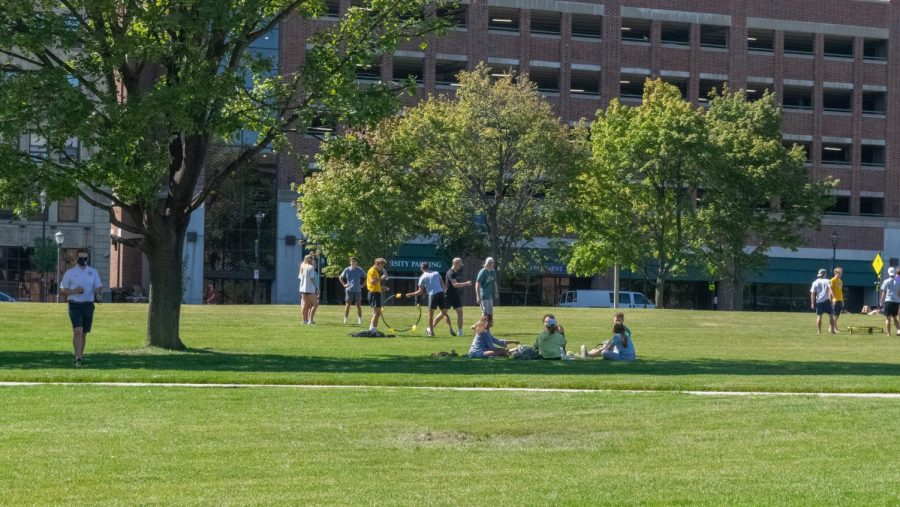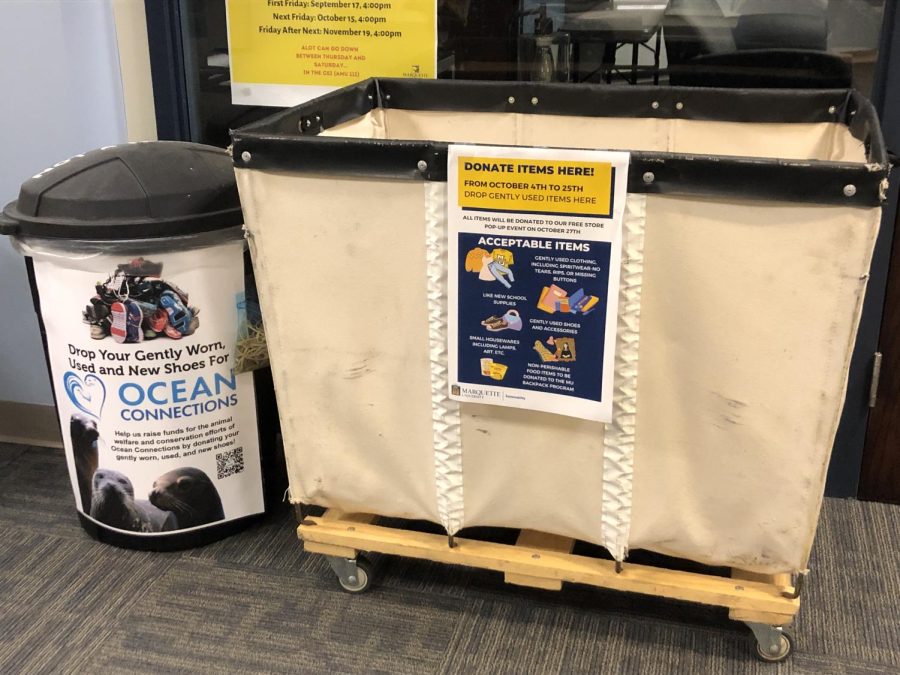Earlier this week, students and visitors to campus may have been left wondering why there were two dirt holes in the ground near the Ray and Kay Eckstein Commons. It was not due in part to the ongoing construction on campus, but rather clearing space to plant pocket prairies.
A pocket prairie is a small patch of land that is used to attract pollinators and grow native plants. Pocket prairies are typically planted in urban environments since there is usually not enough space to grow a full-size prairie.
Nathan Lemoine, assistant professor in biological sciences, Chelsea Malacara, Sustainability & Energy Management coordinator and Kirsten Boeh, communications coordinator in the College of Arts & Sciences, came up with the idea about 18 months ago, then applied for the Explorer Challenge grant in 2021 and received funding in 2022 to start their project.
The Explorer Challenge grant program encourages students, faculty and staff to submit project proposals that make a positive impact on the Marquette community. The challenge will grant up to $25,000 for each project.
The pocket prairies are located near West Wisconsin Avenue on the Ray and Kay Eckstein Commons. The original location for the prairies was going to be in front of the “Our Roots Say That We’re Sisters” mural but was changed so that more people could view them from the road.
“So one of the really cool things is that it’s not just folks on our campus that will see this, it’s people that are driving by. It sort of is just a representation of what it means to be Marquette now and in the future,” Malacara said.
Malacara and Boeh both said the university was responsive and supportive throughout the whole process of choosing the land and what species to plant. Students, faculty, staff and administration all had a hand in supporting the process.
“We are planting about 36, I think, different species of Wisconsin native wildflowers … Seeing the diversity of plants that existed here pre-colonization is just fascinating to me. It’s a history lesson just walking to class,” Boeh said.
The main goal of the prairies is to increase the presence of pollinators and native wildflowers on campus. Native plants promote biodiversity and provide shelter to wildlife.
“Native plants are more beneficial because [they need] less watering and they’re more drought resistant and pesticide resistant,” Alina Dekirmenjian, a senior in the College of Arts & Sciences said.
In order for the pocket prairies to be maintained, the creators will be relying on volunteers to weed and monitor the plants. There are sprinklers in place to ensure that the plants are watered on a regular basis.
The creators of the project are planning on hiring interns for the first few years as the prairie develops to check on the plants and make sure no invasive species grow. One of the plots has empty space leftover in the middle that will be used for eventual research in biodiversity.
“I’m just so excited, I’ve been hoping to have some kind of a native plant installation on campus since I’ve been here. The last 12 years, I’ve been hoping that something like this would happen and the stars finally aligned, and it’s actually going in the ground and we’re getting great support from campus,” Boeh said.
The group is hoping to get more funding for a second phase that is already planned. They would like the current pocket prairies to be a community space and are hoping to place a hammock stand and benches so that students and community members can enjoy the area.
“We just installed the monument to the Land and Water Acknowledgement. To me, this is a way that we’re showing we’re living the land and water acknowledgment we’re not just saying that this is something we acknowledge, we’re actually making action on what that means,” Malacara said.
This story was written by Isabel Bonebrake, she can be reached at [email protected]





